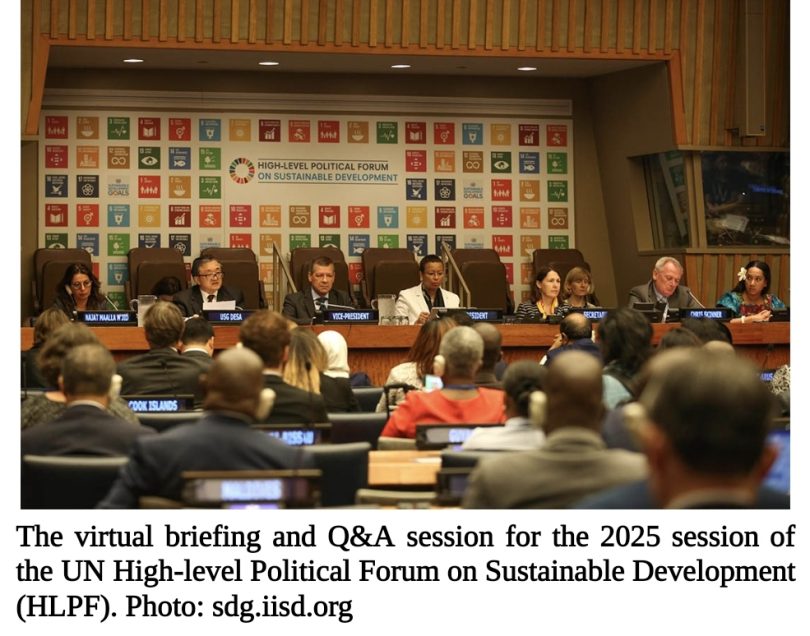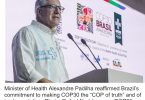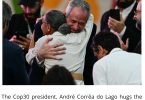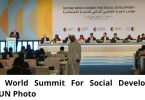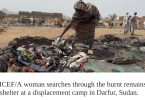The global development community gathered in New York for the 2025 High-Level Political Forum on Sustainable Development, the central United Nations platform for reviewing progress on the 2030 Agenda and the Sustainable Development Goals.
The forum, held annually under the auspices of the UN Economic and Social Council, was held from Monday, July 14, to Thursday, July 23rd. The ministerial segment, a key portion of the forum that features national policy statements and high-level debates, is scheduled for the final three days of the gathering.
This year’s theme, “Advancing sustainable, inclusive, science and evidence-based solutions for the 2030 Agenda for Sustainable Development and its Sustainable Development Goals for leaving no one behind,” places emphasis on coordinated international action and practical interventions. The forum arrives at a pivotal moment. With just over five years remaining until the 2030 deadline, the global community finds itself at a crossroads. Progress on the Goals has been uneven, with some indicators showing significant backsliding due to geopolitical tensions, rising debt burdens, climate-related disasters, and the lingering impacts of global health crises.
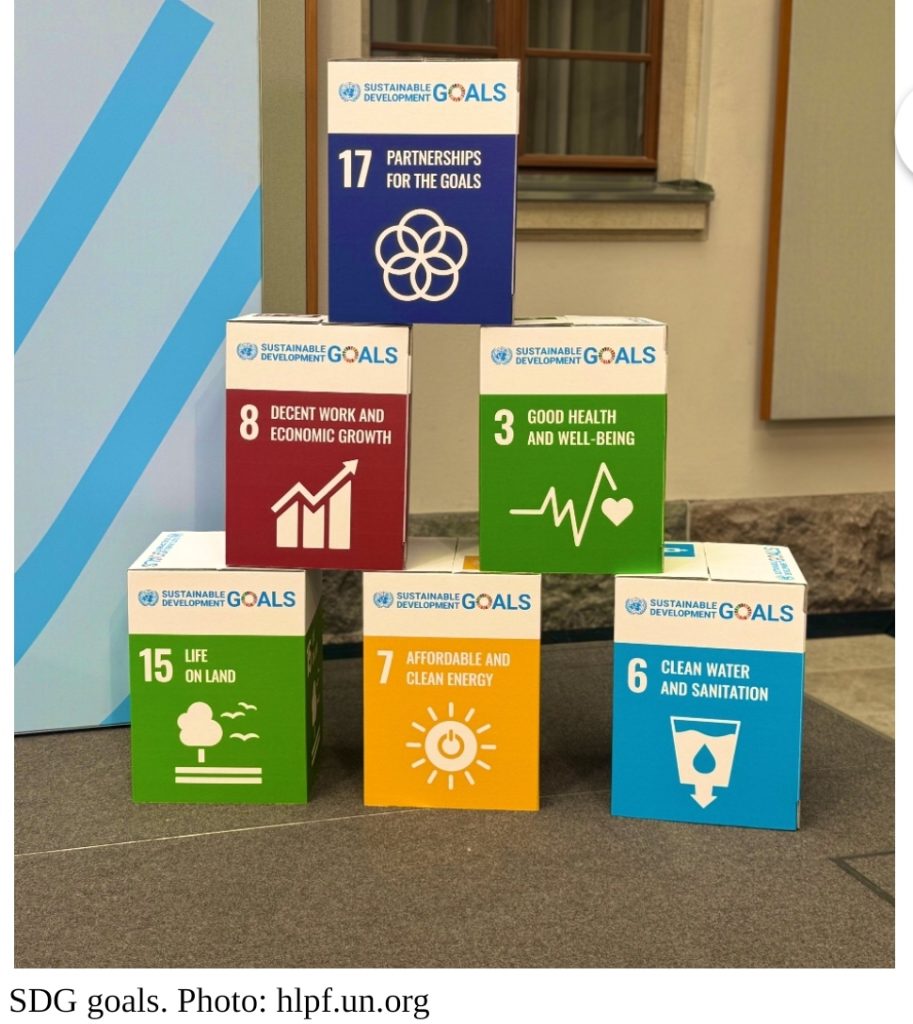
Despite these setbacks, the 2025 HLPF is being positioned as a moment of renewed commitment. Policymakers, civil society leaders, academics, and private sector voices are expected to converge at the UN headquarters with a shared focus on restoring momentum and scaling solutions. The sense of urgency is real. According to the latest Global Sustainable Development Report, fewer than 20% of SDG targets are currently on track. The majority require accelerated or transformative action, particularly in the areas of poverty reduction, gender equality, environmental protection, and economic inclusion.
A Focused Review of Key Goals.
This year’s HLPF will conduct an in-depth review of five Sustainable Development Goals. These are Goal 3 on good health and well-being, Goal 5 on gender equality, Goal 8 on decent work and economic growth, Goal 14 on life below water, and Goal 17 on partnerships for the Goals. Each of these areas represents a cornerstone of global development efforts, and together they illustrate the integrated nature of the 2030 Agenda.
The selection of these five Goals is strategic. Goal 3 focuses attention on public health systems, vaccine access, health infrastructure, and mental health services, especially in the wake of recent epidemics and the continued need for pandemic preparedness. Goal 5 highlights the importance of advancing women’s rights and addressing persistent gender-based disparities in pay, representation, and legal protection. Goal 8 centres on the challenge of building inclusive labour markets in the face of automation, informality, and youth unemployment. Goal 14 draws attention to the ocean economy, marine biodiversity, and the threat of plastic pollution. Goal 17 emphasises the crucial importance of multilateral cooperation, financing for development, capacity building, and effective data systems.
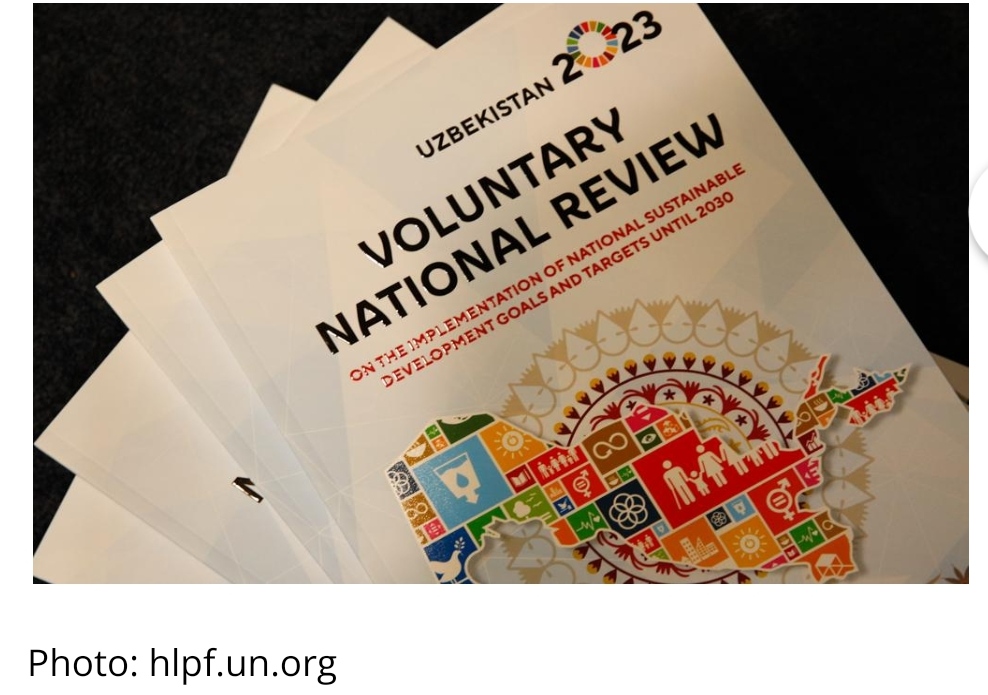
These thematic reviews will be informed by the latest data and research as well as the practical experiences of member states. In the lead-up to the forum, the UN Department of Economic and Social Affairs hosted Expert Group Meetings on each of the five Goals. These meetings brought together global researchers, policymakers, and development partners to examine trends, obstacles, and innovations. Their findings will guide the sessions in New York.
Voluntary National Reviews and Multi-Stakeholder Engagement.
One of the hallmark features of the HLPF is the presentation of Voluntary National Reviews. This year, thirty-seventh countries are expected to submit VNRs. These reviews allow governments to assess their own progress toward the SDGs, highlight successes, confront persistent challenges, and share policy innovations. The VNR process also provides a platform for peer learning and international accountability, helping to stimulate policy improvements across regions.
Beyond the formal presentations, the forum will feature VNR Labs. These are informal, collaborative spaces where countries and their development partners can discuss the inner workings of their reviews. Topics will include data systems, civic engagement, youth inclusion, regional integration, and the importance of policy coherence.
Crucially, the 2025 HLPF aims to strengthen the voices of non-state actors. Civil society groups, local governments, Indigenous leaders, youth advocates, and representatives from the private sector will participate in panels, side events, and roundtables. Their presence reinforces the principle that achieving the SDGs is not the sole responsibility of governments. It requires whole-of-society partnerships built on trust, inclusion, and shared accountability.
Key Events and Milestones.
The nine-day agenda is structured to facilitate high-level dialogue, knowledge exchange, and coalition building. Among the highlights:
- Monday, July 14: The forum opens with a high-level policy dialogue on the means of implementation. Ministers will discuss the need for stronger financing mechanisms, science-based solutions, digital innovation, and global solidarity. Thematic reviews of Goal 3 and Goal 5 will follow in plenary.
- Tuesday, July 15: Science Day will spotlight the role of research, data modelling, and foresight in sustainable development. Sessions will explore how evidence-based policies can anticipate future risks and build long-term resilience.
- Wednesday, July 16: The Local and Regional Governments Forum will highlight the contributions of cities and subnational governments in advancing the SDGs, with particular focus on climate adaptation, service delivery, and participatory planning.
- Thursday and Friday, July 17-18: Further thematic sessions will examine the intersection of digital transformation, inequality, and environmental degradation, with a focus on structural barriers in middle-income countries and Small Island Developing States.
- Monday to Wednesday, July 21 to 23: The Ministerial Segment will convene in the General Assembly Hall. Heads of delegation will deliver national statements, participate in high-level roundtables, and adopt a ministerial declaration that reaffirms global commitment to the 2030 Agenda.
Parallel events, side sessions, and special dialogues will run throughout the forum. These will explore topics such as financing for development, climate finance, SDG localization, and public-private collaboration.
An Urgent Call to Action
The tone heading into HLPF 2025 is one of sober urgency. While there are reasons for concern, a growing recognition is also emerging that recovery is possible. The forum provides a space not only to assess the current state of the world but also to chart a course forward. As ECOSOC President Paula Narváez put it in her pre-forum address, “This is not just a review. It is a reckoning. And it must also be a recommitment.”
The outcome of the forum will shape key moments in the global development calendar, including the 2025 Financing for Development Conference and the upcoming UN Climate Conference (COP 30) in Brazil. The final ministerial declaration will serve as both a benchmark and a beacon, signaling whether the world remains on track to deliver on the promises of the 2030 Agenda.
Written by Olivier Noudjalbaye Dedingar, USA/UN Correspondent.


